Search Results
Showing results 521 to 540 of 1179

Try Your Hand at Nano
Source Institutions
This lesson focuses on two simple activities that younger learners can do to gain an appreciation of nanotechnology. First, learners measure their hands in nanometers.
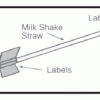
Rockets Away!
Source Institutions
In this activity, learners work in teams to construct and test fly drinking straw rockets. Learners explore how changing the rockets' fins affect flight distance.

Marble Drop Game
Source Institutions
Build your own version of a favorite carnival game, in which a marble races down a maze consisting of rows of nails.
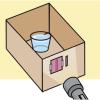
Bending Light
Source Institutions
In this optics activity, learners make a lens and explore how the eye manipulates the light that enters it.

Dancing Spaghetti
Source Institutions
In this chemistry activity, learners use spaghetti to explore density and chemical reactions.

Production of Oxygen
Source Institutions
In this chemistry activity, learners use yeast and hydrogen peroxide to generate a gas (oxygen) and test some of its properties.
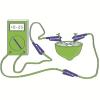
Make Your Own Batteries!
Source Institutions
This activity (on page 3 of the PDF under GPS: Body Electricity Activity) is a full inquiry investigation into conductivity.

New Sense about Cents
Source Institutions
In this activity on page 6 of the PDF (Chemistry—It’s Elemental), learners explore some of the properties of copper using a few common household ingredients.

Paper Drop Design Competition
Source Institutions
Using paper, paper clips, an index card, and tape, teams of learners design flying devices to (1) stay in the air as long as possible and (2) land as close as possible to a given target.
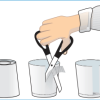
Cleaning Water with Dirt
Source Institutions
In this activity on page 7 of the PDF (Water in Our World), learners make their own water treatment systems for cleaning water.

Testing Vitamin C: Chemistry's Clear Solution
Source Institutions
In this activity on page 8 of the PDF, learners investigate vitamin C. Learners conduct a chemistry experiment to determine if Tang drink mix or orange juice contains more vitamin C.
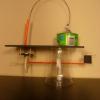
Sound Automata
Source Institutions
In this activity, learners build their own sound machines and explore the interplay of motion and sound.

Scent Tag
Source Institutions
In this matchmaking activity (on page 2 of the PDF under GPS: Animal Scent Activity), learners will each have a scented cotton ball taped to their shoulder. The scent (e.g.
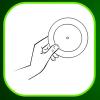
Code Cracker
Source Institutions
Whether it's the genetic code, an ancient language, or patterns of light in a distant galaxy, scientists often have to play the role of decoder.

Production of Hydrogen
Source Institutions
In this chemistry activity, learners use mossy zinc (or a galvanized nail) and hydrochloric acid to generate hydrogen gas and test some of its properties.
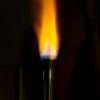
Combustion
Source Institutions
In this chemistry activity, learners discover that the weight of the product of combustion is greater than that of the starting material.
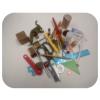
Guess My Rule
Source Institutions
In this simple game, learners start to understand how to sort and categorize objects by trying to guess the connection between three items that someone else has chosen.
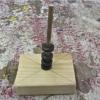
Magnet Tower
Source Institutions
In this activity, learners build magnetic towers to explore the forces and properties of magnets.
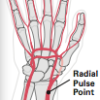
Heart Rate and Exercise
Source Institutions
In this activity about heart health (on page 27 of the PDF), learners measure their heart rates after a variety of physical activities and compare the results with their resting heart rates, and with
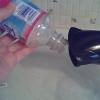
Air Pressure
Source Institutions
In this experiment, learners use a blow dryer and water bottle to observe and record changes in air pressure caused by changes in temperature.
